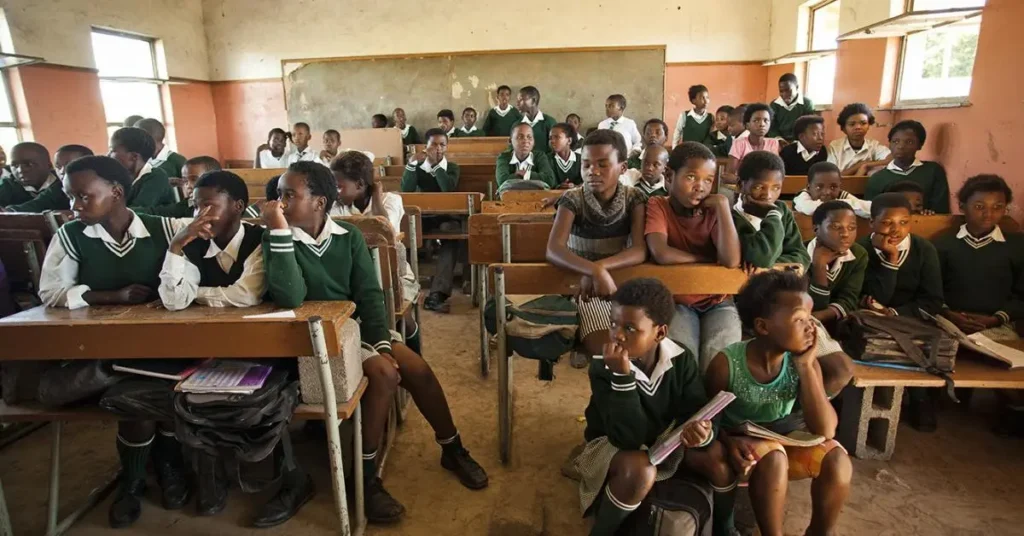Why Financial Literacy is the Missing Link in South Africa’s Development Goals

In a country where approximately 40% of adults remain excluded from formal financial systems, financial literacy isn’t just a nice-to-have skill—it’s an essential building block for sustainable development and social mobility. As South Africa works toward broader economic inclusion, the gap in financial education continues to undermine progress in lifting communities out of poverty.
Beyond Traditional Education
While traditional education rightfully receives significant attention in development discussions, financial literacy often remains in the shadows despite its fundamental and crucial role in breaking intergenerational poverty cycles.
“I view the big opportunity in South Africa around financial inclusion,” explains Brett van Aswegen, CEO of Wonga South Africa. “Looking at South Africa, we have an adult population of approximately 45 million adults. What’s the number of credit active consumers here? Somewhere between 20 to 25 million consumers that are credit active in the country.”
This leaves nearly half the adult population without access to formal financial services, forcing them to rely on informal lenders that often charge between 30-50% monthly interest. Such aggressively high rates perpetuate rather than alleviate financial hardship.
From Exclusion to Empowerment
The journey from financial exclusion to empowerment begins with understanding. For many South Africans, the financial system remains an intimidating maze of terminology and concepts they’ve never been taught to navigate.
That remaining 40%? They’re relying on access to the informal credit market, which is the equivalent of a loan shark in South Africa, they’re called mashonisa, van Aswegen notes from research his company commissioned.
When people lack financial knowledge, they become vulnerable to exploitation, unable to build wealth, and remain trapped in cycles of debt and financial insecurity. This pattern doesn’t just affect individuals—it impacts entire communities and ultimately the nation’s economic growth potential.
Purpose Before Profit
For financial education initiatives to succeed, they must genuinely put community needs above commercial interests. This principle has guided Wonga South Africa’s transformation under van Aswegen’s leadership.
“I think of profit as an outcome,” he explains. “I look at the ‘old’ Wonga as a lesson on what happens when you put profit first and you chase profit at all costs… it eventually comes crashing down.”
This philosophy—what van Aswegen calls “conscious capitalism“—recognizes that sustainable business depends on creating value for all stakeholders, especially customers.
“I’m very mindful of the stakeholders and the ecosystem in which I’m operating. It’s essential to be clear and purposeful in your actions to ensure that the problems you’re solving are for your customers first.”
Through initiatives like The Money Academy, organizations can translate this philosophy into practical education that helps South Africans make informed financial decisions.
Building Financial Identity
Perhaps the most overlooked aspect of financial literacy is how it helps people establish a formal financial identity—something many South Africans lack entirely.
“Giving these customers a bridge into the formal market puts them onto the map,” van Aswegen emphasizes. “It may be a small amount of credit but it’s actually the start of a much bigger, life-long journey for them.”
A credit history doesn’t just determine loan eligibility—it affects housing opportunities, employment prospects, and the ability to build intergenerational wealth and knowledge transfer. Financial literacy equips individuals with the knowledge to build positive financial identities that open doors previously closed to them.
From Short-Term Solutions to Long-Term Success
Financial education must go beyond explaining basic concepts to providing practical pathways for implementing knowledge. Real financial empowerment means understanding how today’s decisions affect tomorrow’s opportunities.
“These solutions need to provide long-term value, not just a short-term fix,” notes van Aswegen. “If I can solve customer problems then I will always have customers.”
In practice, this means organizations involved in community financial education need to focus on sustainable financial habits rather than quick fixes. It means explaining the value of starting small and building consistently over time.
The Way Forward
For South Africa to achieve its development goals, financial literacy must become a national priority on par with traditional education. This requires collaboration between:
- Government entities that can integrate financial education into school curricula
- Financial institutions that can provide resources and expertise
- Community organizations that understand local needs and can deliver contextually relevant education
- Media platforms that can amplify financial knowledge through accessible channels
“I’m trying to build a sustainable business that’s got longevity to it,” van Aswegen reflects. The same principle applies to financial education initiatives—they must be sustainable and produce lasting impact.
As South Africa works toward economic inclusion and social mobility, financial literacy stands as a critical but often overlooked element. By equipping people with financial knowledge and skills, we don’t just help individuals—we strengthen communities, build economic resilience, and create pathways to prosperity that can transform the nation’s future.
For a society where everyone can participate meaningfully in the economy, financial education isn’t optional—it’s essential.
